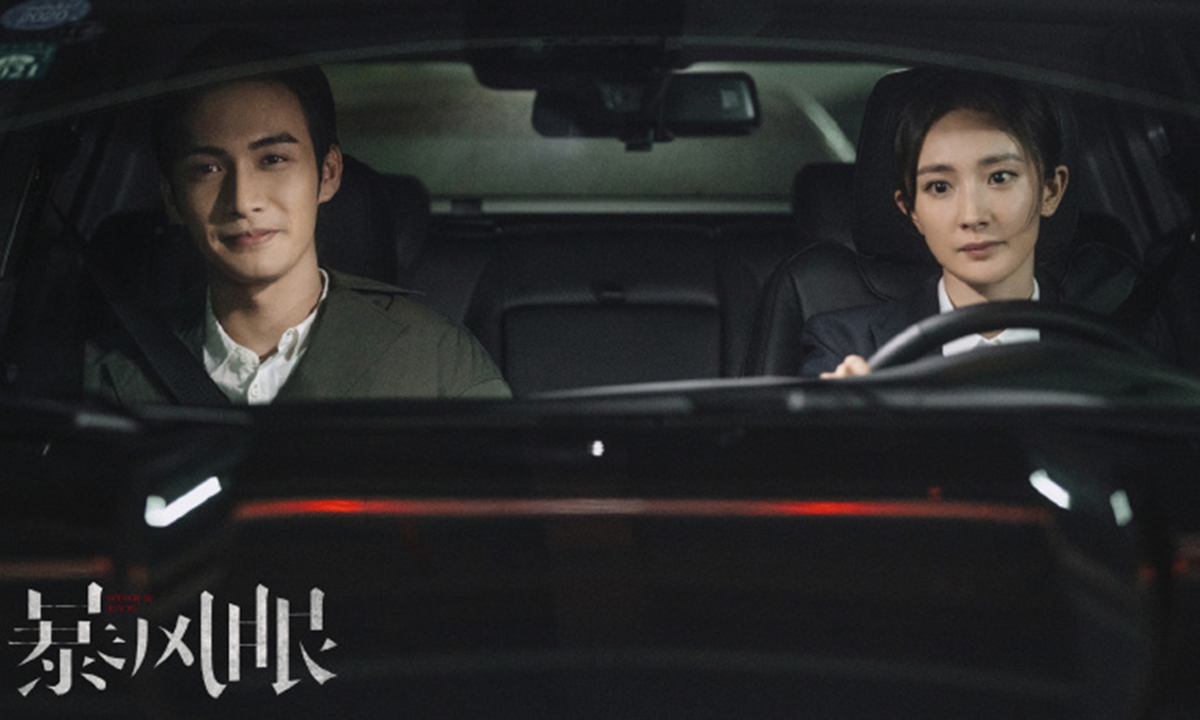ARTS / FILM
Chinese ‘national security’ drama comes under fire for overly dramatic plotlines

Promotional material of Storm Eye Photo: Sina Weibo
The broadcast of Chinese TV drama Storm Eye, a rare TV show about China's State Security Ministry, has been questioned on social media due to its "dramatic plots," but the producers have defended that China is more "conservative" on this subject matter while the West has fewer restrictions.
Storm Eye is a 40-episode series about China's national security. It tells the story of a group of Chinese national security officers who make efforts to protect the country's scarce resources and important technologies from being stolen by spies. It premiered on February 23 on China's Dragon TV, Zhejiang Satellite TV as well as streaming platforms including iQIYI and Tencent Video.
The drama has earned a 6.4/10 score on Chinese review site Douban. Many Chinese netizens have commented on social media that the biggest defect of the drama is that some plots are not down-to-earth and too exaggerated. For example, in one episode a spy puts a thin chip under a tea cup and immediately steals information from a computer that is next to it, while in reality, it is impossible to achieve such an instantaneous transmission.
Yuan Xiaomu, a Chinese producer who had previously produced a spy drama, told the Global Times on Thursday that since some information concerning Chinese national security cannot be revealed, some details in the show need to be vague and so the writers have take dramatic license when it comes to plots.
Li Xuezhi, producer of the hit anti-corruption TV series In the Name of the People, echoed Yuan's view by saying that China is relatively closed when it comes to national security and counterespionage, leading to some difficulties in writing scripts.
"Unlike the agents and police officers that people are familiar with, people including the filmmakers are not familiar with the profession of officers in national security, so there aren't many productions about this theme," Li told the Global Times, adding that "some Western film and television productions have a broader choice in selecting materials. They can even film plots like destroying nuclear weapons, while in China, we are relatively more conservative."
According to Yuan, in the West, dramas like House of Cards usually have many scriptwriters who are in charge of each character in a drama and one organizer who is responsible for the whole framework. This kind of creation team can produce many excellent plot twists. While in China, shows usually only have one scriptwriter, which can make stories relatively weaker.
"For suspense dramas, if it lacks a strong story, it won't be able to win the attention of audiences," said Yuan.
"National Security" refers to anti-terrorism, counter-espionage and political security efforts. Over the past 20 years, the most representative US dramas in this genre are 24 and Homeland, and they have all established a high standard of industrialization in film and television and a unique US drama model.
However, since the end of 24 and Homeland, there have been no more popular US dramas in this genre. It seems how to produce national security dramas that reflect current social problems is still a common challenge in both China and the US.

